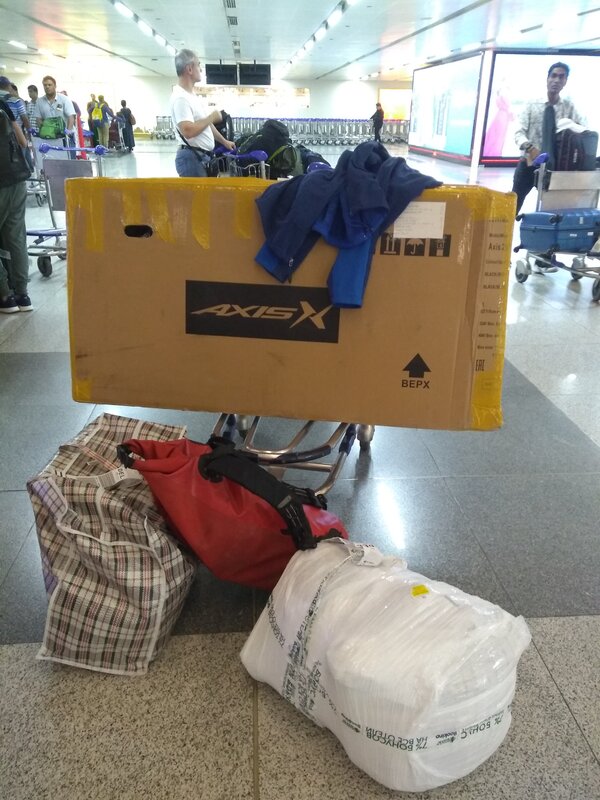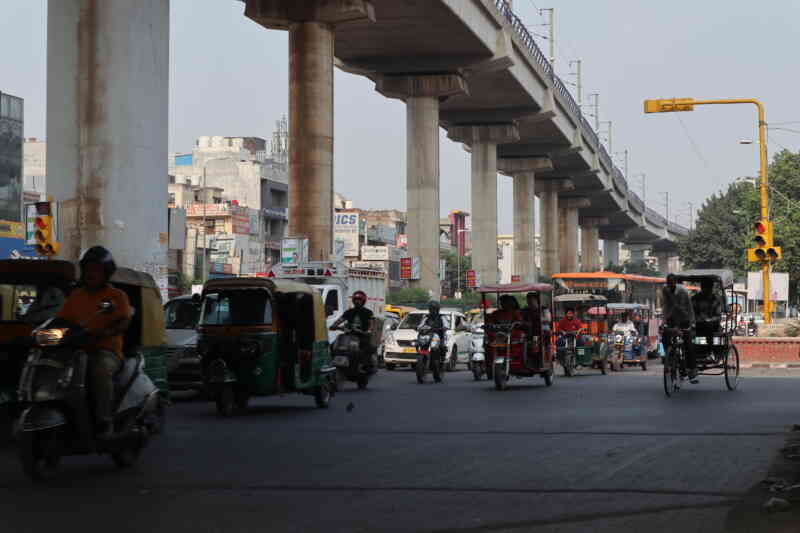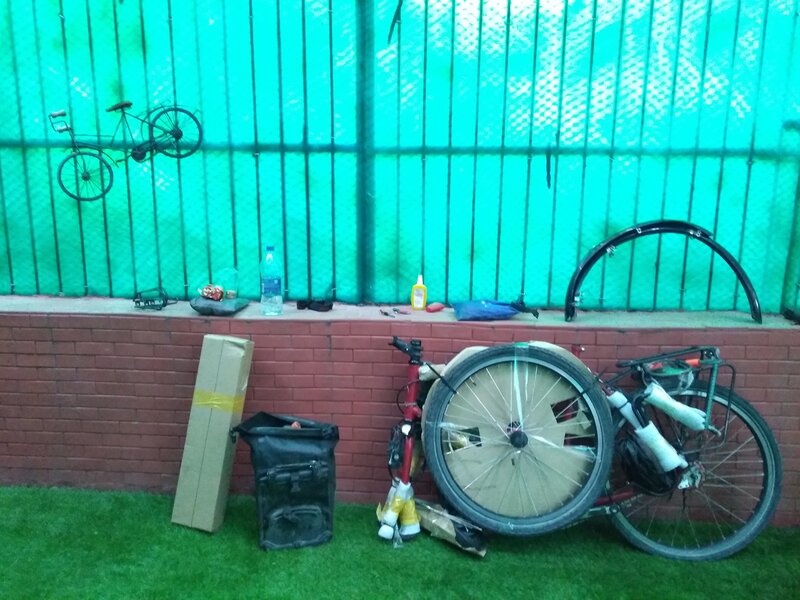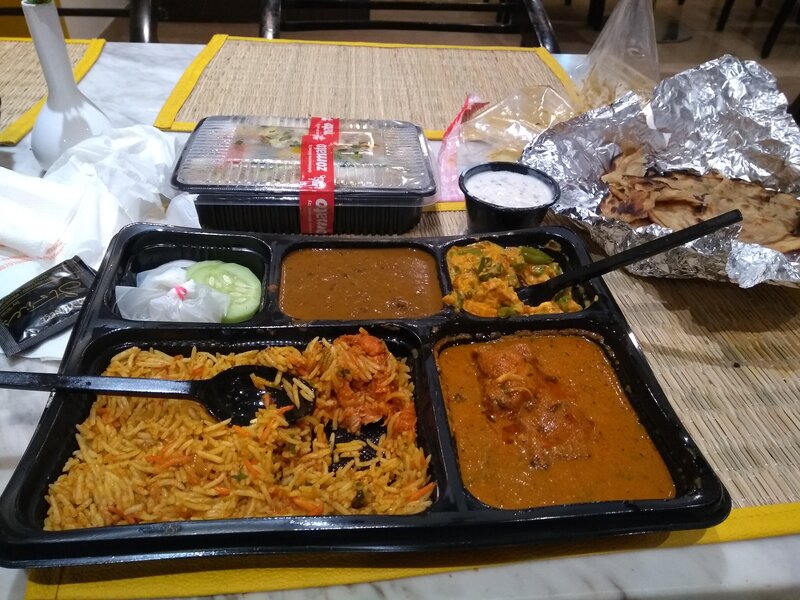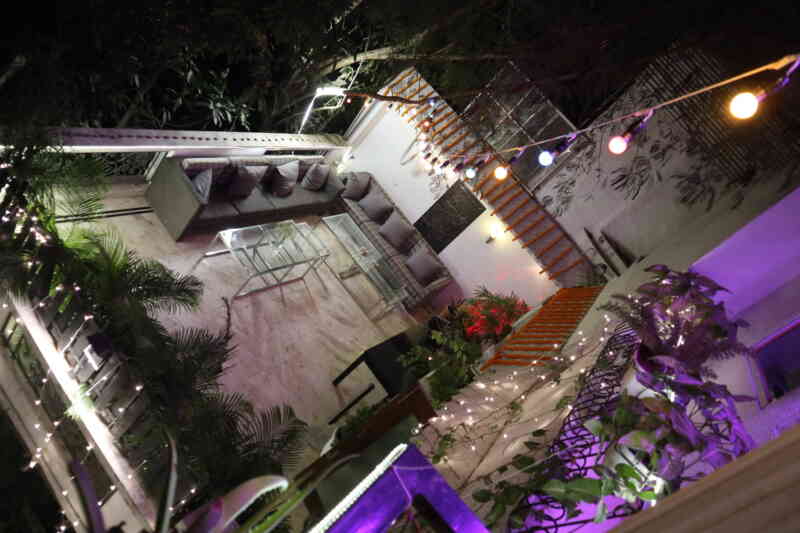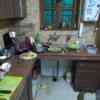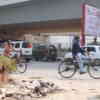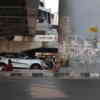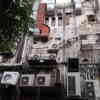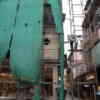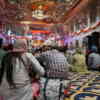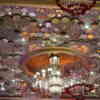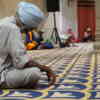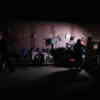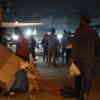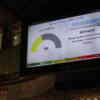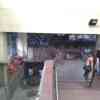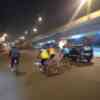Before coming to India, or rather: before this trip, my frame of reference for "Asian country undergoing development" had been Thailand, which I have visited on several occasions. Sure enough I had seen poorer countries in the last months. Albania, Uzbekistan, Tajikistan, to name a few. But the travel to and through those regions of lesser development had been slow, granting me an adjustment period, which I was well aware of.
Slightly apprehensive were my thoughts when booking my flight weeks earlier. What would it be like, catapulted into a new "dimension" after months of slow traveling and adjusting?
"Well, it's not gonna be worse/more difficult/less developed than Thailand", I reaffirmed myself. "And on top of that, everybody speaks English anyways".
Boy was I wrong...
Arrival in Delhi
The immigration at Delhi airport is hands-down the most strenuous and tedious process I've had to go through in the last years. Not enough immigration counters are open for the mass of travelers, resulting in overflowing queues and people not staying in the lines. To make matters worse, the lines for eVisas were multiple times longer than the ones for VOA. The fingerprint sensors used by the immigration officials (to scan no less than ALL your fingers) fail so often that some people have to redo the process 3 or 4 times, resulting in some passengers spending up to 10 minutes at the counter.
After touchdown it takes me about 2 hours to get to the baggage claim and by the time I arrive at the luggage belt, the next flight has already landed and my luggage is sitting on the floor. At least my bags and bike have made it to Delhi complete and unharmed: thanks, Air Astana!
To the surprise of nobody it proves a bit challenging for me as "India newcomer" to get a taxi for a fair price. First of all, seemingly none of the cars are big enough to carry my oversized bike box and I really don't trust the idea of putting the bike onto the roof of a car, tied down only with a single, very sketchy looking strap.
It's 1pm. A woman at the taxi information stand is snoring loudly in her chair, head bent backwards. The guy at the other stand just gives me the head wiggle when asked What to do with my bicycle.
I ask around more, and eventually I find a small van that offers to carry my box and me for 500 rupees (6 EUR) to my destination. It's double the regular charge (the approximate rate to my hostel is about 200 rupees) but saving 3 EUR is, at that point, not enough of an incentive for me to stay in front of the airport for the next few hours and reassemble my bicycle under the eyes of god knows how many curious onlookers.
In the afternoon, I start putting my bike back together in the mosquito-infested (at least that stereotype holds true) backyard of my hostel I. Much to my surprise, I manage to reassemble it without breaking anything and the next day I venture into the Delhi traffic for a test ride.
- First insight: there is trash and garbage everywhere. Seriously, it's even worse than Rome :D However even though the efforts come maybe 1-2 decades too late, measures are being taken to avoid additional waste:
- Some supermarkets do not distribute plastic bags but reusable linen(?) bags
- Food to order comes with spoons of wood, instead of plastic
- Street food is served on recycled card box plates
- Second insight: Indians like to honk
a lota fuckton. Some cars or motorbikes just hold their horn continuously pressed while going down the road, not to mention the extra strong horns of buses or trucks. It is absolutely deafening. Cycling in busy areas is no fun, ear plugs are a must! - Third insight: I don't really smell any exhaust fumes, which is astonishing. It might have to do with the fact that the smog is really, really strong. In fact, 9 of the 10 most polluted cities in the world are in India (of course, Delhi is one of them).
Other revelations
- Things are more expensive than I thought. This might be Delhi-specific (alcohol tax), but 200 Rupees for a domestic beer or 20 Rs for a 1L water bottle are not What I had expected to pay in India. Once more I realize how spoiled I was by German discounters
- There are virtually no supermarkets. If you want bread, vegetables, alcohol, you often have to get it from different stores. It sucks.
- Water is only sold in 1L bottles for 20 rupees each. Bigger bottles? They exist, but good luck finding a shop selling them
- Ordering food online and having it delivered to the hostel (Zomato, Swiggy) is often cheaper than going to the restaurant yourself.
Happy Diwali everyone
In Delhi, I allow myself and adjustment period of a couple of days, to get used to all the buzz and also to decide where to go next. But first, I will couch surf with a local: my host S. has studied law in the UK and now works in her hometown Delhi. I'm invited to stay over during Diwali, the "festival of lights".
Arriving hat her place in Central New Delhi, I'm taken aback by the standard of living: a 24h security guard is watching the entrance to the house, which is just shared with family. My host has her own cook/helper, who lives in a separate room with his wife. The car she owns is not driven by herself, but a driver. And apparently there is also someone responsible for the small garden. Drinks for tonight's celebration will be delivered, flowers are being arranged, lights set up by some workers and later a caterer and bartender will make sure nobody in the crowd of about 30 guests will stay hungry or thirsty.
"Oh yeah, you could compare it with Christmas" my host says when asked about the significance of the celebration.
The party will last until the morning hours, long after I've fallen asleep.
The next day I decide to book a bus ticket: Rishikesh shall be my destination. Meanwhile, the bicycle will take a rest in Delhi.
